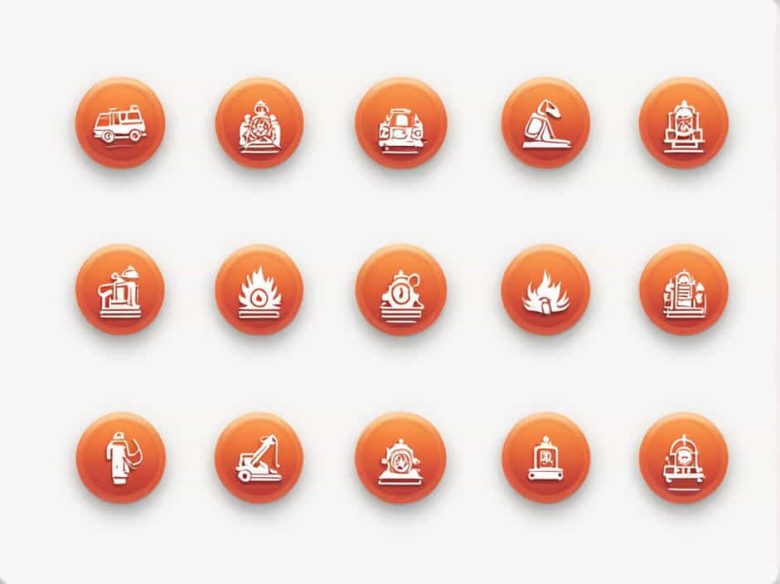In case of a fire or emergency knowing the fire brigade number is crucial for quick response and safety. Different countries and regions have specific emergency numbers to contact fire services. These numbers are part of the essential emergency response system designed to protect lives and property.
This topic provides a detailed guide on fire brigade contact numbers their importance how fire services operate and what to do in case of a fire emergency.
What Is the Fire Brigade Number?
The fire brigade number is a dedicated emergency hotline used to contact fire services in case of fires accidents or hazardous situations. This number varies by country and is often part of the national emergency system.
Common Fire Brigade Numbers by Country
| Country | Fire Brigade Number |
|---|---|
| United States | 911 |
| United Kingdom | 999 |
| Canada | 911 |
| Australia | 000 |
| India | 101 |
| European Union | 112 |
| China | 119 |
| Japan | 119 |
| South Africa | 10177 |
| UAE | 997 |
Universal Emergency Number: 112
In many countries 112 is recognized as the universal emergency number. It connects to the nearest emergency service including fire brigades police and medical assistance. This number works across the European Union India and several other countries.
Why Is the Fire Brigade Number Important?
1. Quick Response to Fire Emergencies
A fast response time is critical in a fire emergency. The quicker the fire brigade is alerted the better the chances of minimizing damage and saving lives.
2. Preventing Fire from Spreading
Small fires can quickly escalate. Immediate firefighting intervention helps prevent the spread of flames reducing destruction and financial loss.
3. Handling Hazardous Situations
Fire brigades also deal with chemical spills gas leaks and rescue operations in addition to putting out fires. Calling the right number ensures trained professionals handle dangerous situations.
4. Saving Lives and Property
The primary goal of the fire service is to save lives. Firefighters are trained to rescue trapped individuals administer first aid and evacuate affected areas safely.
How to Contact the Fire Brigade in an Emergency
1. Dial the Correct Emergency Number
- Find the correct fire brigade number for your country.
- If unsure dial 112 (works in most regions).
2. Provide Clear and Accurate Information
When calling be prepared to give the following details:
- Your location (address landmarks GPS coordinates if available).
- Type of fire (house fire forest fire gas leak electrical fire).
- People trapped or injured (if any).
- Any potential hazards (flammable materials chemical storage gas cylinders).
3. Stay Calm and Follow Instructions
- Listen carefully to the fire dispatcher’s instructions.
- Stay on the line until told otherwise.
- If safe try to evacuate while waiting for firefighters to arrive.
What Happens After Calling the Fire Brigade?
1. Firefighters Are Dispatched Immediately
Once the emergency call is received the nearest fire station is alerted. Firefighters prepare their equipment and rush to the scene.
2. Fire Suppression and Rescue Operations Begin
Firefighters work to:
- Extinguish the fire using water foam or fire extinguishers.
- Rescue trapped individuals from buildings vehicles or hazardous areas.
- Control the spread of fire to prevent further damage.
3. Investigation and Safety Measures
After the fire is under control officials assess the cause of the fire and provide safety recommendations to prevent future incidents.
Types of Fire Emergencies and How to Handle Them
1. House Fires
- Turn off gas or electricity if safe to do so.
- Evacuate immediately and call the fire brigade.
- Do not use water on electrical or oil fires.
2. Vehicle Fires
- Pull over safely and exit the vehicle.
- Call the fire brigade and stay at a safe distance.
- Do not attempt to open the hood if smoke is visible.
3. Forest and Wildfires
- Avoid fire-prone areas during dry seasons.
- Call emergency services and follow evacuation orders.
- Do not attempt to fight large fires alone.
4. Electrical Fires
- Do not use water (risk of electrocution).
- Turn off the power supply and use a fire extinguisher.
- Call the fire brigade if the fire is uncontrollable.
Fire Prevention Tips
1. Install Fire Alarms and Extinguishers
- Smoke detectors alert occupants before fires spread.
- Keep fire extinguishers in kitchens garages and offices.
2. Practice Fire Drills and Evacuation Plans
- Teach family members and employees how to exit safely.
- Identify safe meeting points outside the building.
3. Keep Flammable Items Away from Heat Sources
- Store flammable liquids properly.
- Avoid placing curtains or paper near heaters and stoves.
4. Do Not Overload Electrical Circuits
- Faulty wiring and overloaded sockets are major fire hazards.
- Use surge protectors and get professional electrical inspections.
Knowing the fire brigade number and how to react during an emergency can save lives and prevent major losses. Whether at home work or traveling understanding fire safety measures and quickly contacting the right authorities is essential.
Always be prepared stay calm in emergencies and educate others about fire safety to create a safer environment for everyone.
